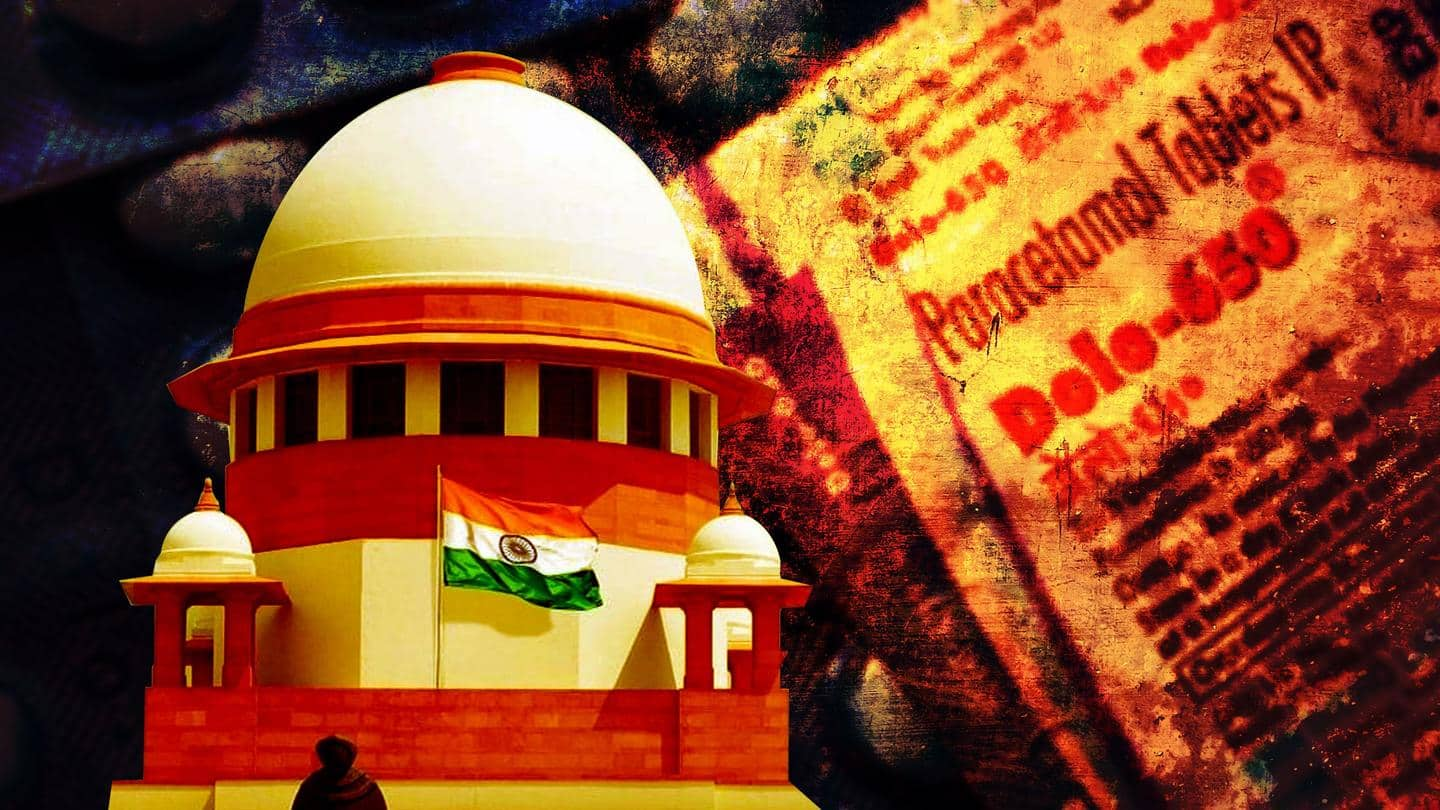
Petition in SC: Dolo gave Rs. 1,000-cr freebies to doctors
What's the story
Dolo-650 manufacturers provided doctors with Rs. 1,000 crore worth of freebies as an incentive, a plea in the Supreme Court said on Thursday.
The plea contended that the fever-curing-tablet was distributed among doctors as an incentive for prescribing the medicine to most patients.
Reacting to the matter, the top court said that it is a serious issue.
Context
Why does this story matter?
On July 13, the Central Board of Direct Taxes (CBDT) accused the manufacturers of Dolo-650 tablet of engaging in 'unethical practices.'
The board had alleged that free drugs were provided to medical professionals in exchange for promotions.
The issue was highlighted after the Income Tax department, on July 9, raided 36 locations linked to Micro Labs Ltd. in nine states.
Details
Row over Dolo in Supreme Court
The plea by Medical & Sales Representatives Association of India contends that Micro Labs distributed Dolo-650 mg after Rs. 1,000 crores as freebies.
Since the price of drugs up to 500 mg is regulated by the government, Micro Labs allegedly distributed freebies to have doctors sell the 650 mg tablet, the price of which can be fixed by a pharma company, advocates said.
Court
What did the Supreme Court say?
A bench of Justices DY Chandrachud and AS Bopanna termed it as a 'serious issue.'
Notably, Justice Chandrachud said, "This is not music to my ears. Even I was asked to have same medicine when I had COVID-19," according to PTI.
The top court has asked the Centre to file a response within 10 days.
The matter will next be heard on September 29.
Petition
'Freebies give pharma companies a high profit margin'
Senior advocate Sanjay Parikh, appearing for the petitioner, said that the company distributed freebies to doctors to ensure a higher profit margin.
It contended that pharma companies who give incentives to doctors for their medicines must be held accountable.
"Such practices can not only result in over-use of drugs but also jeopardize the health of patients," the petition said.
Corruption
What else does the petition say?
The NGO argues in its plea that such acts of corruption push high-priced irrational drugs in the market.
The voluntary nature of existing rules leads to the flourishing of unethical practices by pharma companies, the plea said, adding that such activities peaked during the COVID-19 pandemic.
It asked the court to make the Uniform Code of Pharmaceutical Marketing Practices (UCPMP) effective to increase accountability.
Information
Raids on Micro Labs Ltd. in July
The raids by CBDT on 36 premises of Bangalore-based Micro Labs Ltd. allegedly revealed unethical practices in the pharma company. After browsing through financial records, the CBDT said it detected tax evasion of Rs. 300 crore. Their major products include Dolo-650, Amlong, Lubrex, and Tripride.
Uniform Code
'Pharma companies blame doctors for taking bribes'
The Supreme Court on March 11 agreed to formulate a UCPMP to bring down unethical practices and ensure transparency and accountability.
The petitioners say that pharma companies claim that they are not liable for punishment as the doctors are the ones taking bribes.
Citing the corruption with Remdesivir injections during COVID-19 pandemic, Parikh said the code will help government lay down guidelines.